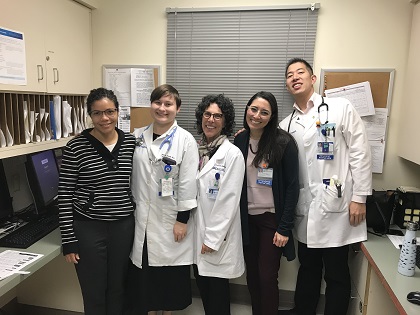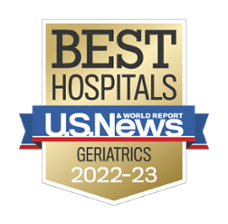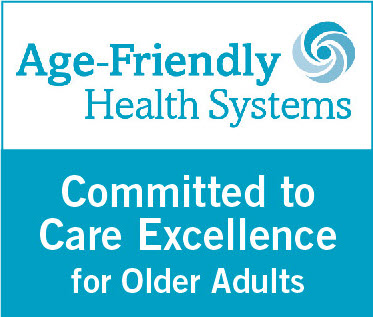
|
|
Geriatric Clinic at the FQHC

Transforming a clinical training environment to integrate geriatrics and primary care delivery systems and train workforces that are competent in geriatric medical care
We exported processes from UCI’s SeniorHealth Center (SHC), with primary care and consultative geriatric assessment and memory disorder clinics, and a Patient Centered Medical Home (PCMH) with registries for diabetes, heart failure, dementia, and high-risk patients. Annual Wellness Visits are implemented into the workflow and used as a method of ensuring preventive care. In addition, it is an interdisciplinary team-based site with nursing leaders for teams of care, and pharmacy and social work clinics in addition to team-based assessments. Our care models include transitions care, chronic disease, preventive care, and dementia care. Through our processes we have increased our quality measures significantly for diabetes and preventive care and reduced emergency room visits by 30%. One-third of the SHC patients had a version of Medicare and Medi-Cal insurance, and, in fact, many with Medi-Cal are former FQHC patients who established with the SHC when they turned 65 and obtained Medicare. Thus, much of the patient population is similar to the patients at the FQHCs, providing a demographic match for exporting systems of care to the underserved sites.
In May 2016, we implemented our Family Medicine resident/NP-run Geriatric Memory Clinic at UCI’s Santa Ana FQHC. The clinic occurs every Wednesday mornings with one hour consults for older adult patients with memory impairments. The patients are referred by the FQHC faculty and residents. Consults include a comprehensive assessment with a focus on patient-centered care. Annual Wellness Visits (AWV) as well as assessments of gait, memory, and other cognitive disorders are conducted.
Geriatric specialists provide consultation to all of the learners, NP students and Family Medicine residents, thus providing for an interprofessional experience. In addition, pharmacists and social workers based at the FQHC participate in the patients’ care as needed. A psychiatrist supports the patients with medication management needs. Family Medicine Residents rotate through the Geriatric Clinic every week. This practical clinical experience is a complimented by 16 hours of geriatric specific didactic training each year.
In 2019 Telehealth will be introduced to connect Geriatricians at the SHC with learners, Residents and NPs at the Geriatric Clinic. Through this telehealth expansion more in-depth assessments can be conducted and real-time feedback can be exchanged.
A tool used it the Geriatric Clinic to asses memory impairment is the Clock Draw. We are currently analyzing its efficacy in diagnosing memory impairment in patients with low education levels. Initial findings on this analysis was presented at the American Geriatric Society’s annual conference in 2018 and can be reviewed here.

